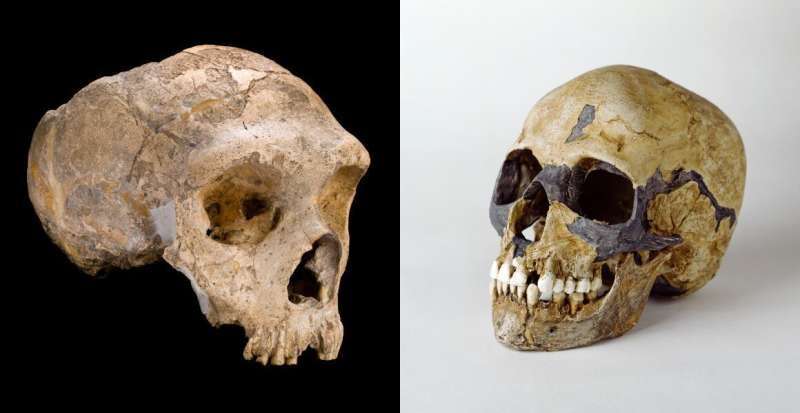Best of Last Week—Neanderthals went extinct due to sex, using sunlight for WiFi, a vaccine for breast cancer

It was a good week for biological research as a team at the University of Toronto found that some degree of antibiotic resistance can be linked to household products—they found that triclosan was the predominant antibiotic in Ontario sewage samples. Also, a researcher at Curtin University discovered a new species of bee with a dog-like snout. Kit Prendergast has named her find Leioproctus zephyr, after her pet dog. And a pair of researchers, Chris Stringer and Lucile Crété, both with the Natural History Museum in London, announced evidence that Neanderthals likely went extinct due to sex, rather than violence, via interbreeding with humans.
In technology news, a combined team of researchers from the University of Michigan, the University of Florida and the University of Electro-Communications in Japan found that laser attacks on autonomous vehicles could lead to accidents, including running over pedestrians. And a team at the University of Waterloo discovered a security loophole in WiFi networks that could allow attackers to see through walls. A combined team from Hanyang University and Duksung Women's University in South Korea, designed and built a system to communicate remotely by user embodiment of a humanoid robot. And a team at King Abdullah University of Science and Technology found that sunlight streaming through a window could be harnessed for wireless data transmission to electronic devices as an alternative to traditional WiFi technology.
In other news, a team with members from several institutions in the U.S. and Canada found that iron in the blood induced chronic heart failure in half of the animal model heart attack survivors they studied—its presence often helped scar tissue to be replaced by fat instead of muscle. Also, a pair of researchers at Franklin and Marshall College conducted a study showing how cosmetics can increase the attractiveness of men. Carlota Batres and Hannah Robinson found that it can have real-world implications, such as impacting juries. And finally, a team at the University of Washington School of Medicine in Seattle found that a breast cancer vaccine they developed safely generated anti-tumor immunity in a phase 1 clinical trial.
© 2022 Science X Network